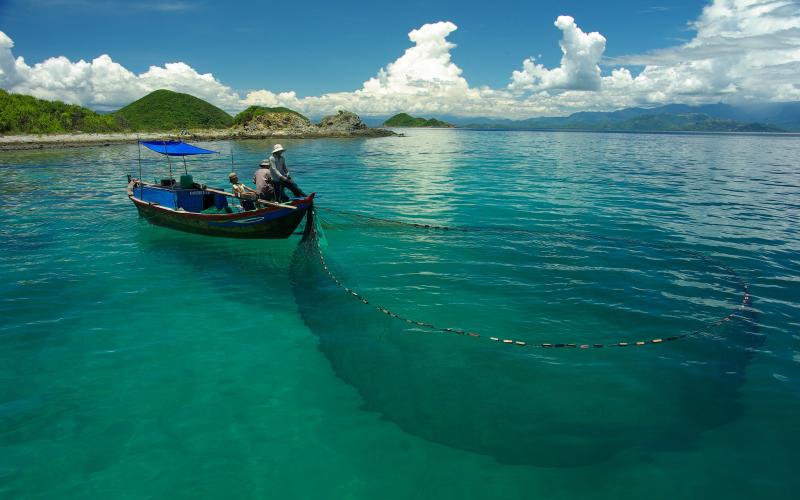
The blue economy holds a grand promise: to harness the ocean's vast resources for sustainable economic growth that benefits everyone, not just a select few. It's a compelling vision, especially considering the pressing challenges of climate change and widening social inequalities. Yet, despite its potential, our latest research reveals a significant gap between the ambitious goals touted and the reality of how investments are being managed.
In our analysis of $5.9 billion allocated to blue economy initiatives from 2017 to 2021, we found that the bulk of this investment is concentrated in Europe and Central Asia, predominantly in business development and offshore wind energy. This focus might contribute to economic development in these regions, but it raises critical questions about the broader impacts on global ocean health and coastal community welfare, particularly in less developed areas that rely heavily on the sea for their livelihoods.
One of the core principles of the blue economy is to ensure that economic benefits from the ocean are distributed fairly and that environmental protection is prioritized. However, our findings suggest that this principle is often overshadowed by the pursuit of quick economic returns. For instance, while renewable energy projects like offshore wind are crucial for transitioning to a low-carbon future, they also need to be balanced with investments that directly benefit marine ecosystems and the communities that depend on them.
Moreover, essential sectors like sustainable fisheries and marine conservation are notably underfunded. This is troubling because these areas are vital for the health of our oceans and for the millions of people worldwide who depend on marine resources for food and economic security.
The underinvestment in these sectors suggests a misalignment between the stated goals of the blue economy and the actual flow of funds.
This misalignment not only threatens the sustainability of ocean resources but also perpetuates social inequities. Our research shows that 35% of the projects we examined had potential risks for creating or exacerbating social inequities. These 'red flags' include projects that may increase private control over ocean resources traditionally accessed by local communities or those that could lead to environmental degradation affecting vulnerable groups the most.
Addressing these issues requires a shift in how blue economy investments are planned and executed:
- Transparency must be at the heart of this shift. Stakeholders, including governments, investors, and the public, need access to clear, detailed information about where money is going and what it is achieving. This transparency will foster accountability, ensuring that projects genuinely adhere to sustainable and equitable practices.
- A more equitable geographical distribution of funds is also needed. The Global South with rich marine ecosystems, such as parts of Africa, Asia, the Pacific and Latin America, often receive a fraction of the investment made into economically well-off countries. Balancing this scale is not just a matter of fairness but also effectiveness, as these regions are often on the frontlines of economic, ocean conservation and food security challenges.
- A rebalancing of investment is needed towards sectors that directly contribute to ecological sustainability and social equity. This includes boosting funding for community-led conservation projects, sustainable fisheries management, and initiatives that build the resilience of coastal communities to climate change.
The blue economy should not be a buzzword or a guise under which business as usual continues. Instead, it should represent a transformative approach to how we view and value our oceans.
To steer the blue economy in that direction, it is time for all involved—policy makers, business leaders, and community advocates—to recommit to the foundational goals of the blue economy. We must ensure that our oceans are not only sources of wealth but also wellsprings of sustainability and equity.
In July this year, WorldFish and the Department of Fisheries, Malaysia, are organizing the 21st International Institute of Fisheries Economics & Trade (IIFET) Conference in Penang, Malaysia (15-19 July 2024). The theme of IIFET 2024 is "Aquatic Food Systems in the Blue Economy", focusing on the intersection of fisheries and aquaculture economics and trade with global challenges, to shape a resilient blue economy that delivers on its promise for healthy people, healthy planet and shared prosperity.
I invite you to join the conversation on how we can make the blue economy work for everyone. Share your thoughts, challenge the norms, and advocate for changes that will ensure our oceans thrive for generations to come. Together, we can turn the tide towards a more just and sustainable future.
